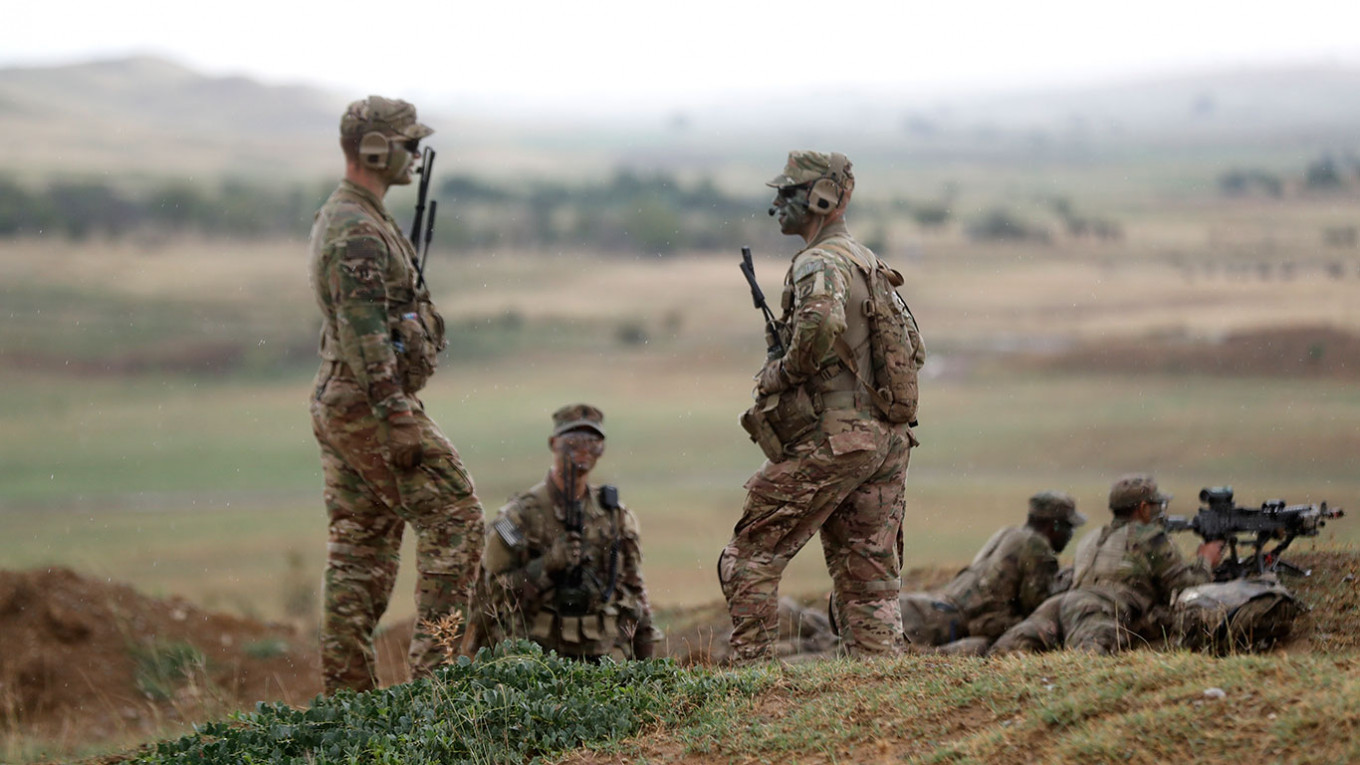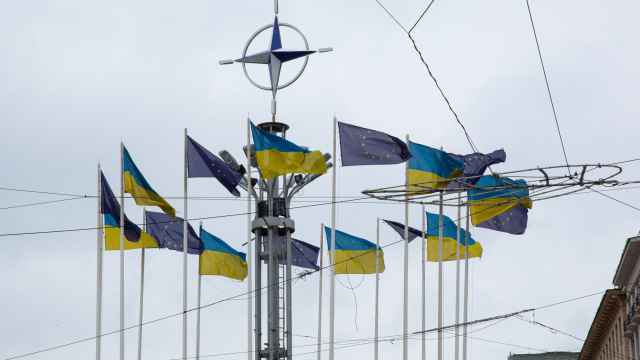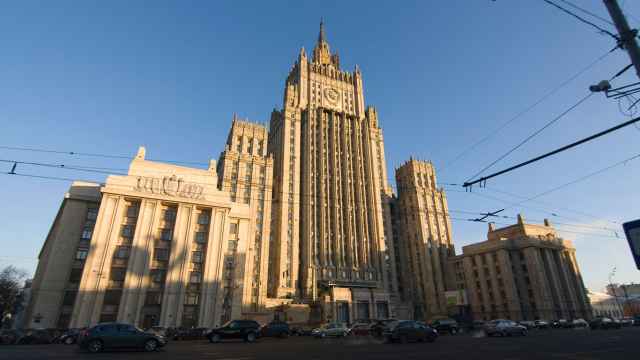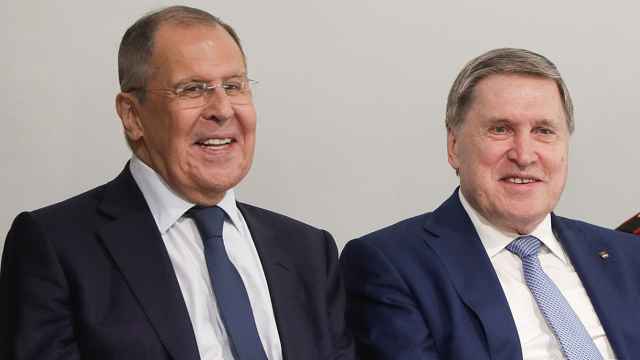Russia has made public a list of demands for security guarantees from NATO that seek to limit the Western military bloc’s role in Ukraine and the former Soviet space.
Weeks of Russian military buildup near the Ukrainian border have raised alarm in the West that Russia might invade Ukraine as early as January. Moscow, meanwhile, blames NATO for provocations and threatening its security.
Russia has repeatedly said it wants a legally binding guarantee that Ukraine will never join NATO and that the alliance will halt its expansion toward Russian borders.
In the list of demands published on the Russian Foreign Ministry website on Friday, Moscow asks NATO to abandon all military activities not just in Ukraine, but also Eastern Europe, the Caucasus region and Central Asia.
Russia also asks the U.S. not to establish any new military bases on the territory of former Soviet states and for NATO to guarantee that it will block future membership for any former Soviet republic.
Russia demands that NATO pledge not to deploy troops to Eastern Europe without Russian consent, with the alliance prohibited from increasing troop numbers past those of 1997, before NATO expanded into Eastern Europe. The proposal would de facto ban NATO from deploying forces in former-communist member states including Poland, the Czech Republic and the Baltics.
Another point seeks to reaffirm that Moscow and the U.S.-led alliance “do not consider each other adversaries” and that the two will “resolve all disputes peacefully and refrain from the use of force.”
Russia’s Foreign Ministry handed the list to visiting U.S. diplomat Karen Donfried this week and President Vladimir Putin reiterated his demand that talks between the U.S.and NATO on international legal guarantees for Russia’s security begin “immediately.”
Deputy Foreign Minister Sergei Ryabkov told journalists in Moscow on Friday that Russia was "ready" as early as Saturday to begin security talks with the U.S. He also said Moscow was “extremely disappointed” by signals coming from the West regarding Russia’s proposals on security guarantees.
Meanwhile, the U.S. said it wouldn’t negotiate without input from Europe.
"We've managed to engage Russia over strategic concerns for decades," White House Press Secretary Jen Psaki said. "There's no reason we can't do that moving forward to reduce instability, but we're going to do that in partnership and coordination with our European allies and partners.”
A senior official on Friday told reporters that the United States was willing to discuss security proposals put forward by Russia but disagreed with parts of them.
"We are prepared to discuss them. That said, there are some things in this document that the Russians know will be unacceptable," the official told reporters on condition of anonymity.
The EU on Thursday rejected Russia’s bid to block Kiev’s NATO ambitions and repeated that it will impose "massive consequences and severe costs" on Russia if the country decides to invade Ukraine.
Earlier this week, Ryabkov warned that Russia will respond “militarily” if the Western military bloc does not guarantee an end to its eastward expansion.
Difficult negotiations
The sweeping demands will have great consequences for the balance of power on the European continent and experts said the West was unlikely to accept the terms presented by Russia.
“The demands from Moscow appear to make any negotiation much more difficult. Seeking limits on NATO deployments and exercises on the territory of NATO member states is likely to be a non-starter in Washington,” Matthew Rojansky, director of the Wilson Center's Kennan Institute in Washington, told The Moscow Times.
“The Kremlin cannot have a realistic expectation it will get legally binding commitments of this nature from NATO, but that may not be the point — rather it may be to shape negotiations in the shadow of a looming military threat to Ukraine and, by extension, to Europe,” Rojansky added.
Rojansky pointed out that the message from the West to Russia has also been clear, that any further “aggression against Ukraine or any other state will not be tolerated, and will be met with an unprecedented response.”
“In sum, these will be difficult but still vitally important negotiations.”
Russia-based experts also doubted the West was likely to accept the latest demands.
“Publication of Russian proposed agreements with U.S. and NATO on [European security] may suggest that Moscow (rightly) considers their acceptance by the West unlikely,” Dmitry Trenin, director of the Carnegie Moscow Center, tweeted shortly after Russia published the demands. Trenin added that Russia “will have to assure its security single-handedly, most probably by military-technical means.”
Andrei Kortunov, head of the Russian International Affairs Council (RIAC), a Kremlin-aligned think tank, said that the Kremlin likely doesn't expect the West to accept its demands.
“This is a bargaining position — [the Kremlin] is trying to get some degree of partial acceptance. Of course, there is a real risk to making these sorts of demands, especially if the West takes a harsh position, but clearly, the Kremlin thinks that the risk is justified in the circumstances,” Kortunov told The Moscow Times.
Felix Light contributed reporting.
A Message from The Moscow Times:
Dear readers,
We are facing unprecedented challenges. Russia's Prosecutor General's Office has designated The Moscow Times as an "undesirable" organization, criminalizing our work and putting our staff at risk of prosecution. This follows our earlier unjust labeling as a "foreign agent."
These actions are direct attempts to silence independent journalism in Russia. The authorities claim our work "discredits the decisions of the Russian leadership." We see things differently: we strive to provide accurate, unbiased reporting on Russia.
We, the journalists of The Moscow Times, refuse to be silenced. But to continue our work, we need your help.
Your support, no matter how small, makes a world of difference. If you can, please support us monthly starting from just $2. It's quick to set up, and every contribution makes a significant impact.
By supporting The Moscow Times, you're defending open, independent journalism in the face of repression. Thank you for standing with us.
Remind me later.








